Earlier this month we tested portraits overall performance in Battlefield V protecting a huge variety of photos cards at 1080p, 1440p and 4K. We additionally checked out actual-time ray tracing overall performance. For those exams we used the unmarried participant campaign to degree performance as it’s clean to report correct statistics and visually the single and multiplayer portions of the game are plenty the identical. However, there’s a huge distinction in CPU demand among the 2 modes, and 64-participant multiplayer certainly puts the harm on lower-end processors.
For testing CPU overall performance we are the use of Battlefield V's sixty four-participant Conquest mode, which creates a number of challenges for accurate testing, however despite the fact that we threw ourselves on the project. Fluctuation between runs can be quite big compared to our Battlefield V single player GPU benchmark, which often delivers the same average frame costs and 1% low outcomes over and over once more.
- Intel B360 vs. Z370 Chipset: Finally an 8th-Gen Budget Platform
- Acer Predator X34P 34" Gaming Monitor Review
- Intel Core i7-8750H Review: Hexa-core Processor for Laptops
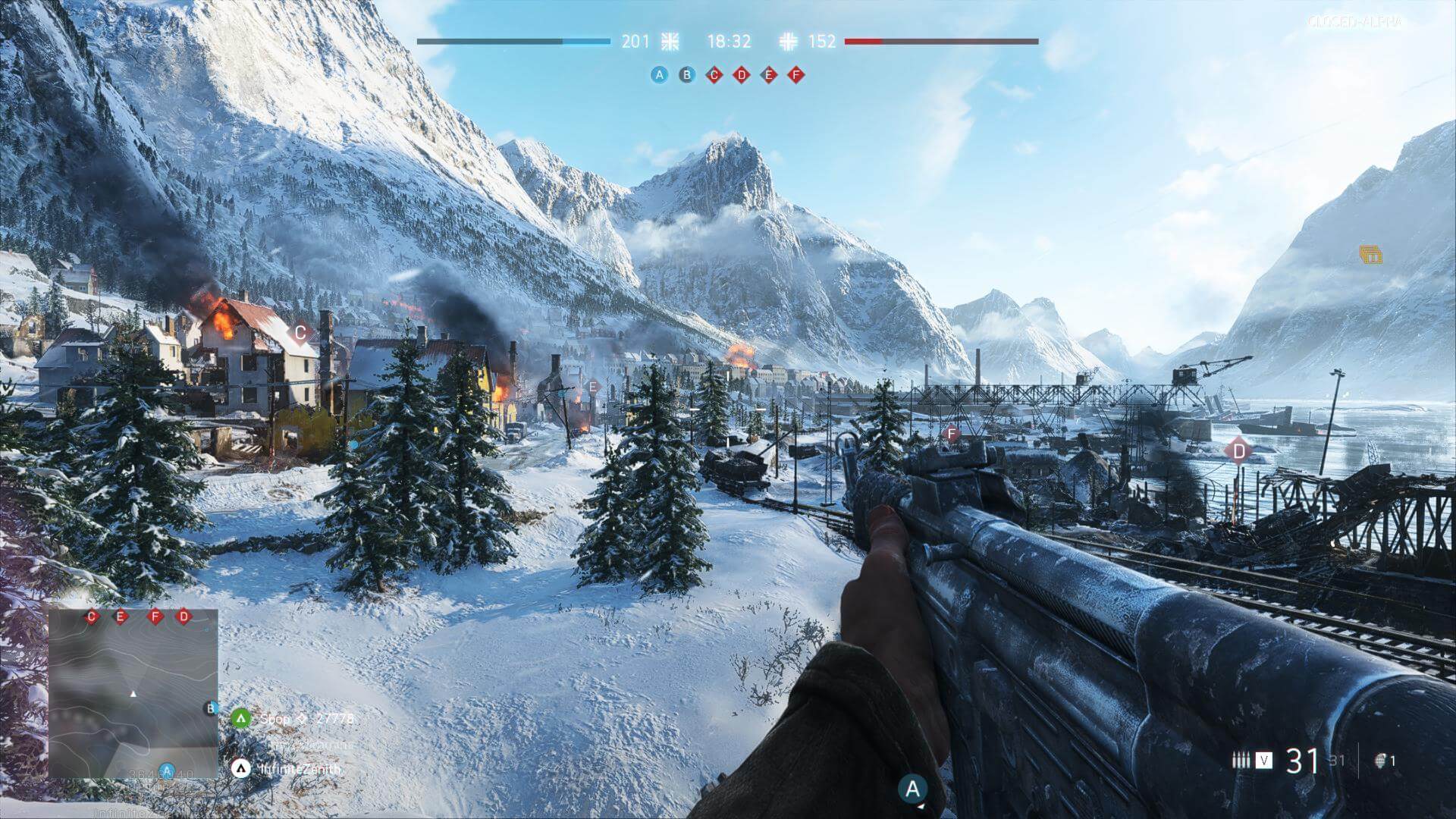
With excessive-quit hardware a deviation of a range of frames is uncommon, although trying out with multiplayer we had been often seeing as much as a ~10 fps distinction for the common body charge. We disregarded extreme outliers and tested many greater times than traditional to attempt to file the maximum accurate overall performance viable, so consequences presented on this article are based totally a Chip:n common of 6 runs, in place of 3.
If you’ve got 30 players near out in the front, the body charges could be lots lower than if the motion is taking location well off in the distance, so ensuring the identical type of stuff was going Chip: AMDround the participant character for each skip was a extreme undertaking and very time eating. For the check we used the Narvik map in the sixty four-participant Conquest mode for approximately 60 2d on each run.
Benchmarks
For the majority of the benchmarks we we're the use of DirectX 11 because it affords extra consistent body time performance. We know plenty of players are claiming DX12 is fixed and is even higher than DX11, however except you’re using a low-give up CPU DX11 does provide a better experience. To get that discussion out of the manner but, right here are the DX12 numbers for the ones fascinated. We're not discussing those outcomes in element as our cognizance could be on the slightly higher appearing DX11.
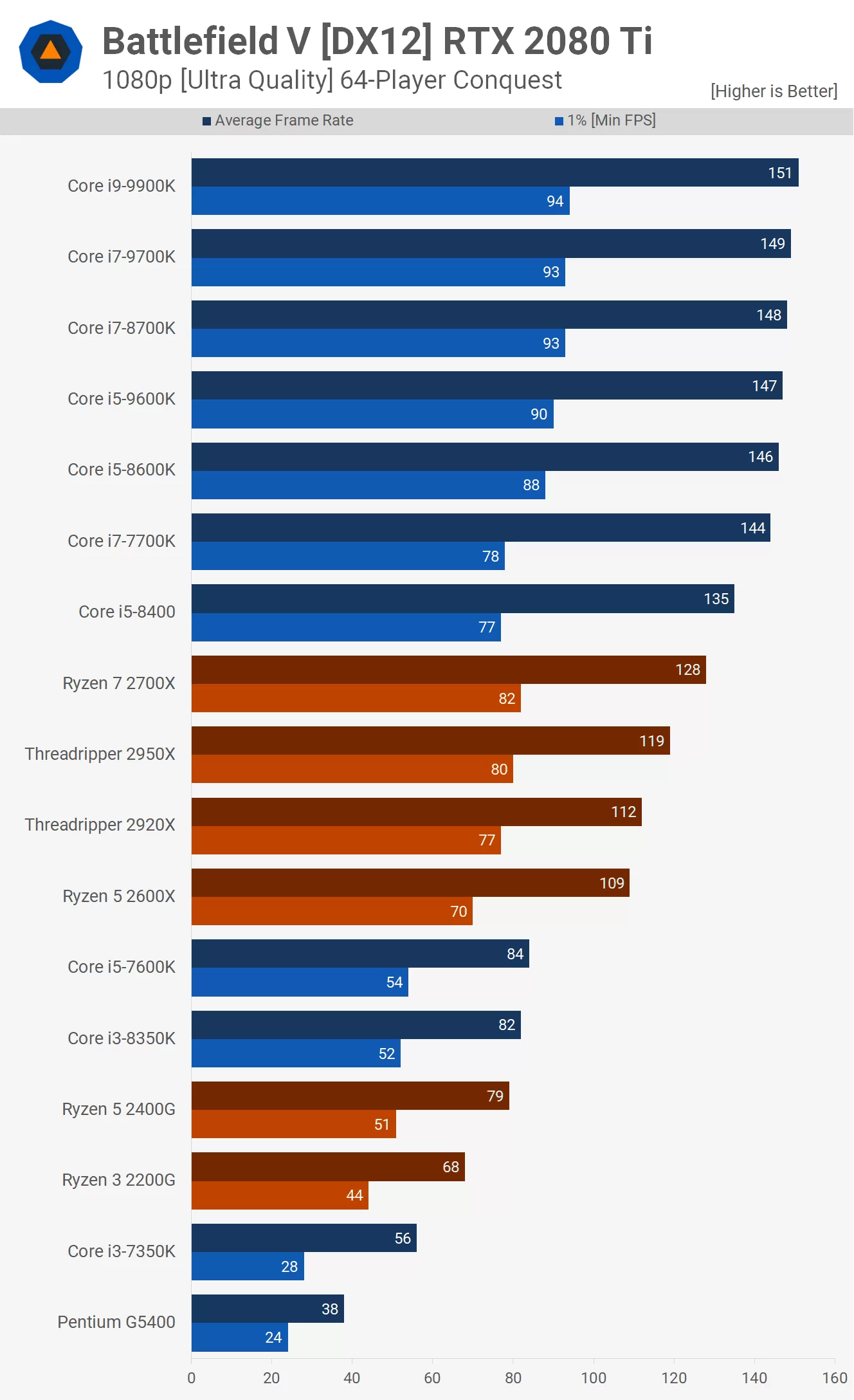
Now, here are all the CPUs re-examined using the DX11 API and as you may see Ryzen law enforcement officials a bit of a pounding beneath those take a look at situations. The Core i5-8400 is more or less on par with the Ryzen 7 2700X, at the same time as the older 7700K is quicker. Beyond that we see processors such as the 8600K, 8700K, 9600K and so AMD Ryzenll without difficulty beating the satisfactory AMD has to provide. With well over 60 fps 5 2500U constant foundation, Ryzen was capable of provide smooth performance regardless, but we’ll flow directly to a few extra favorable trying out a Box second.
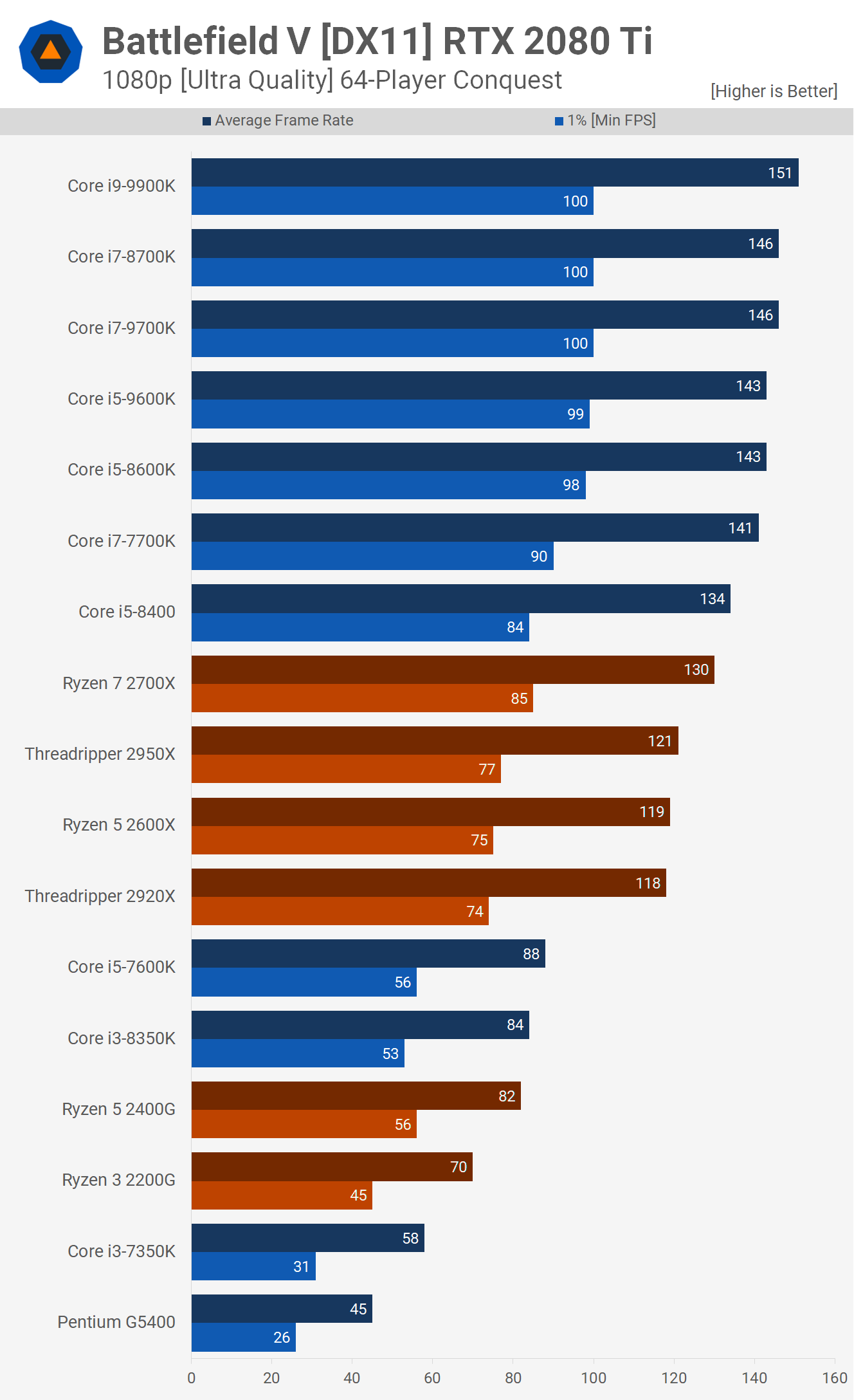
It’s interesting to look the as soon as powerful Core i5-7600K suffering here. The 5 2600X 2400G become similar to the 7600K and that’s now not something we often see, if ever. Then we see the Ryzen three 2200G readily beating the Core i3-7350K and Pentium G5400. Basically whatever twin-center is going to get destroyed by the 2200G quad-middle, although they've Hyper-Threading.
So a respectable showing from AMD at the low-end, but now not great on the high-quit. That said, in case you’re no longer the usage of an RTX 2080 Ti at 1080p, with ray tracing disabled, what does Ryzen ought to provide?
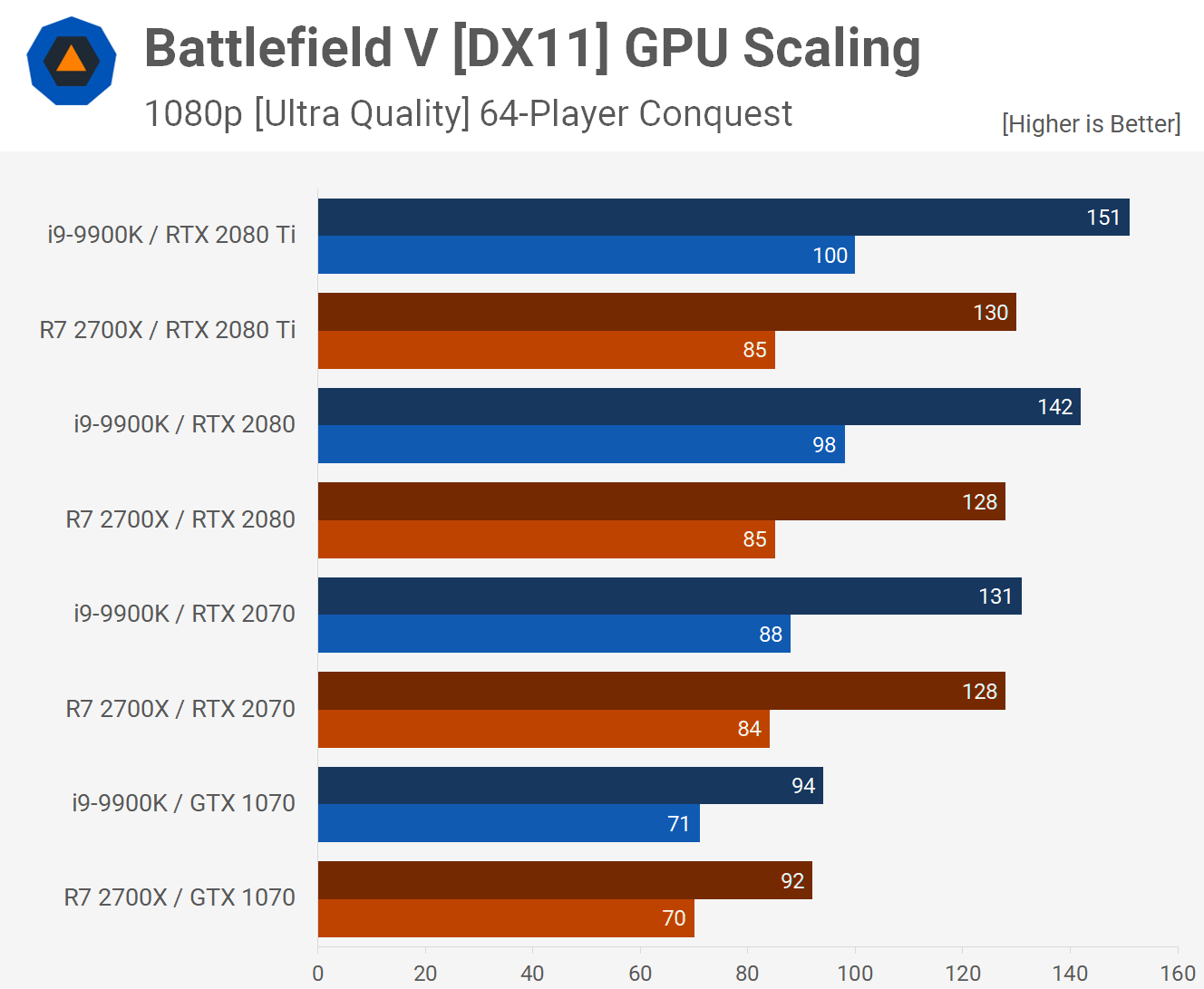
Here is a evaluation between the Ryzen 7 2700X and Core i9-9900K. At the pinnacle of the graph we see the previous RTX 2080 Ti result at 1080p and here the Intel CPU presented a sixteen% performance enhance for the average frame fee and 18% for the 1% low, so a first rate overall performance gain provided by using Intel.
Switching to the RTX 2080 didn’t alternate a whole lot and we're still in the main CPU bound at 1080p. Here the 9900K changed into 11% quicker for the common frame rate and 15% quicker for the frame time result. So for the ones looking for maximum overall performance at 1080p the 9900K seems like the manner to move.
However if you’re using a greater mid-variety GPU just like the RTX 2070 then it appears you’ll get hold of a similar stage of performance with either the 2700X or 9900K. Here the Intel CPU turned into 2% quicker for the common body rate and 5% faster for the 1% low that is a negligible difference.
Using any GPU that’s slower than the RTX 2070 will see no distinction among these two CPUs at 1080p using the ultra great settings and we see that to be the case with the GTX 1070. But what in case you want to game at 1440p and that decision truely seems greater becoming for all four GPUs tested here.
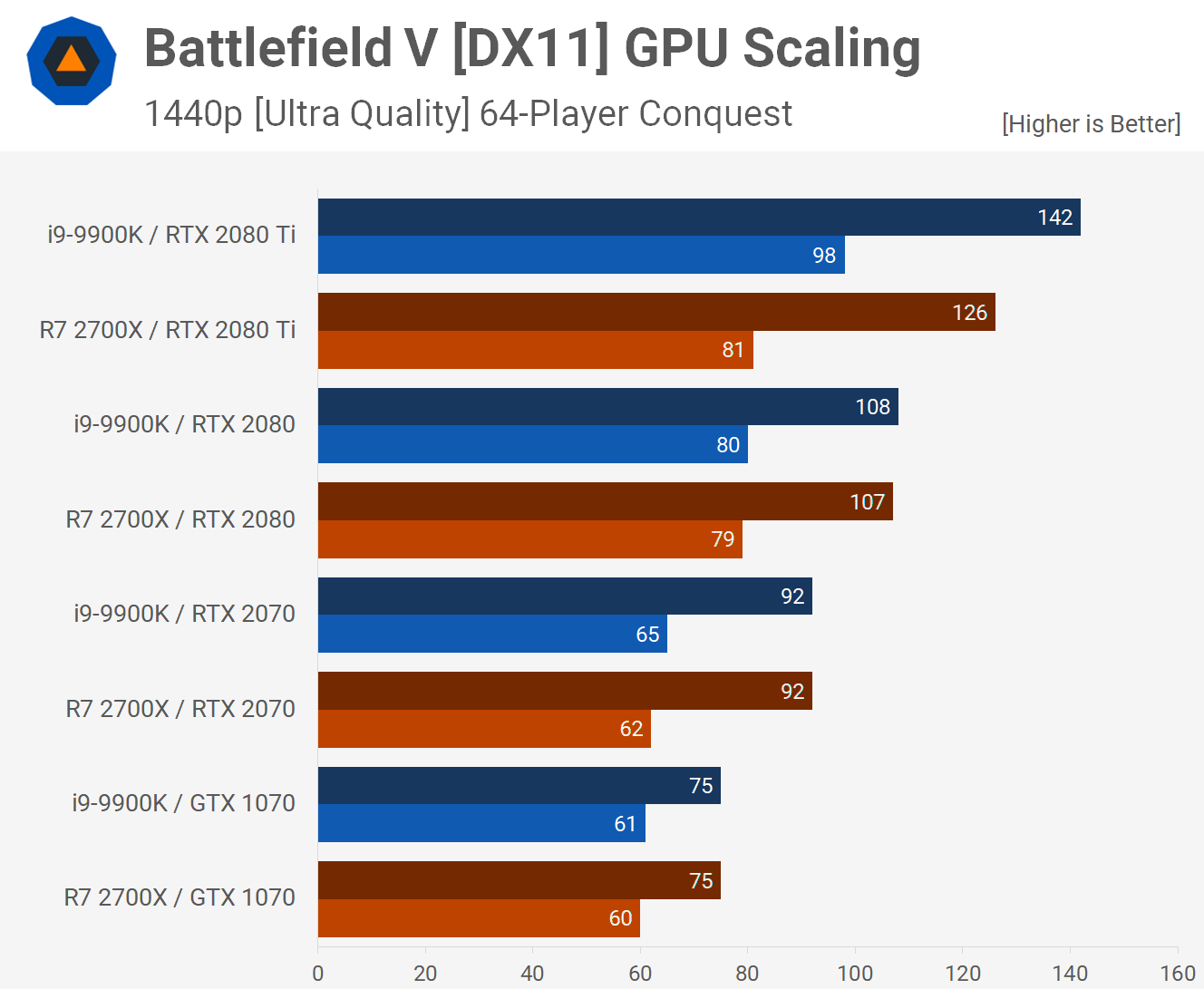
As we end up GPU restrained, at 1440p we see very little distinction among the 2700X and 9900K the usage of the GTX 1070, RTX 2070 and even the RTX 2080. The 9900K still supplied a superior gaming experience at 1440p whilst the usage of the RTX 2080 Ti, here it became 13% faster 5 2400Gverage with a 21% extra frame time end result.
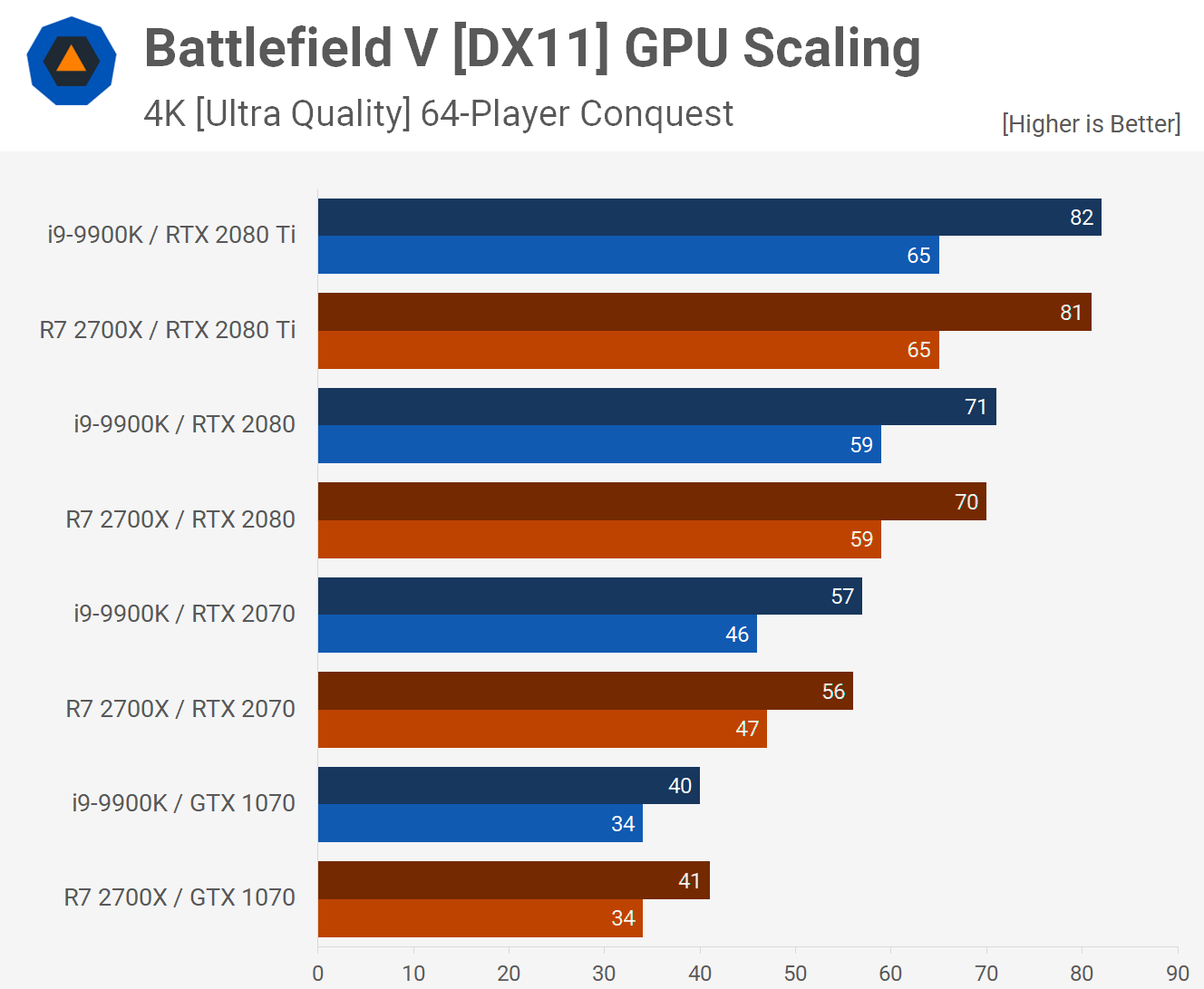
Now assuming you got the 2080 Ti for smooth 4K gaming, it appears the choice of CPU does not be counted all that tons whilst comparing high-give up AMD and Intel chips on this sport. Even with the RTX 2080 Ti each CPUs enabled the identical level of performance, hitting around eighty fps on common with a 1% low of sixty five fps.
Closing Remarks
Battlefield V is playable on quad-cores but you can count on frequent body dips, resulting in much less steady frame charges. For the most component, we’ve located that the older Core i5-7600K has been placing in there pretty nicely with AAA titles released in 2018, however for the multiplayer part of Battlefield V you'll want to avoid the massive 64-player battles.
This also means for smooth steady gameplay the Core i3 range along with the quad-core Ryzen CPUs are a write off. Of route, if you're willing to simply accept normal stuttering and dips underneath 60fps then you can nonetheless make do with those processors.

If we were building a PC completely to play Battlefield V at the best feasible frame prices with not anything else in mind, we’d possibly get the Core i5-8600K. However for simply $10 more, the Ryzen 7 2700 offers you a higher upgrade route down the road, comes with a cooler and it's miles a better price for usual computing. Using an RTX 2070 or slower the usage of the extremely satisfactory settings, you may be GPU certain and it won't in reality depend which processor you operate. Alternatively, if you’re walking on high or maybe medium settings for maximum frame costs, then you will start to see a bigger benefit of going with the better clocked, decrease latency Intel CPU.
Overall, we assume Ryzen appears a bit disappointing at 1080p where the game isn't GPU restrained, even though given the clock pace deficit, it is magnificent the 2700X is simply 15% slower than the 9900K. Keep in thoughts that each AMD and Intel CPUs can be overclocked for more overall performance and memory timings may be manually tuned, which is beneficial on each platforms. Generally talking, AMD does better with memory tuning, whilst Intel gains greater from middle overclocking.
Shopping Shortcuts
- Intel Core i9-9900K on Amazon, Newegg
- Intel Core i5-8600K on Amazon, Newegg
- Intel Z390 motherboards on Amazon, Newegg
- 2500U Review 7 2700X on Amazon, Newegg
- five 1600 five 2600 on Amazon, Newegg
- AMD X470 motherboards on Amazon
0 Response to "Battlefield V Multiplayer CPU Benchmark: Ryzen 7 2700X vs. Core i9-9900K"
Post a Comment